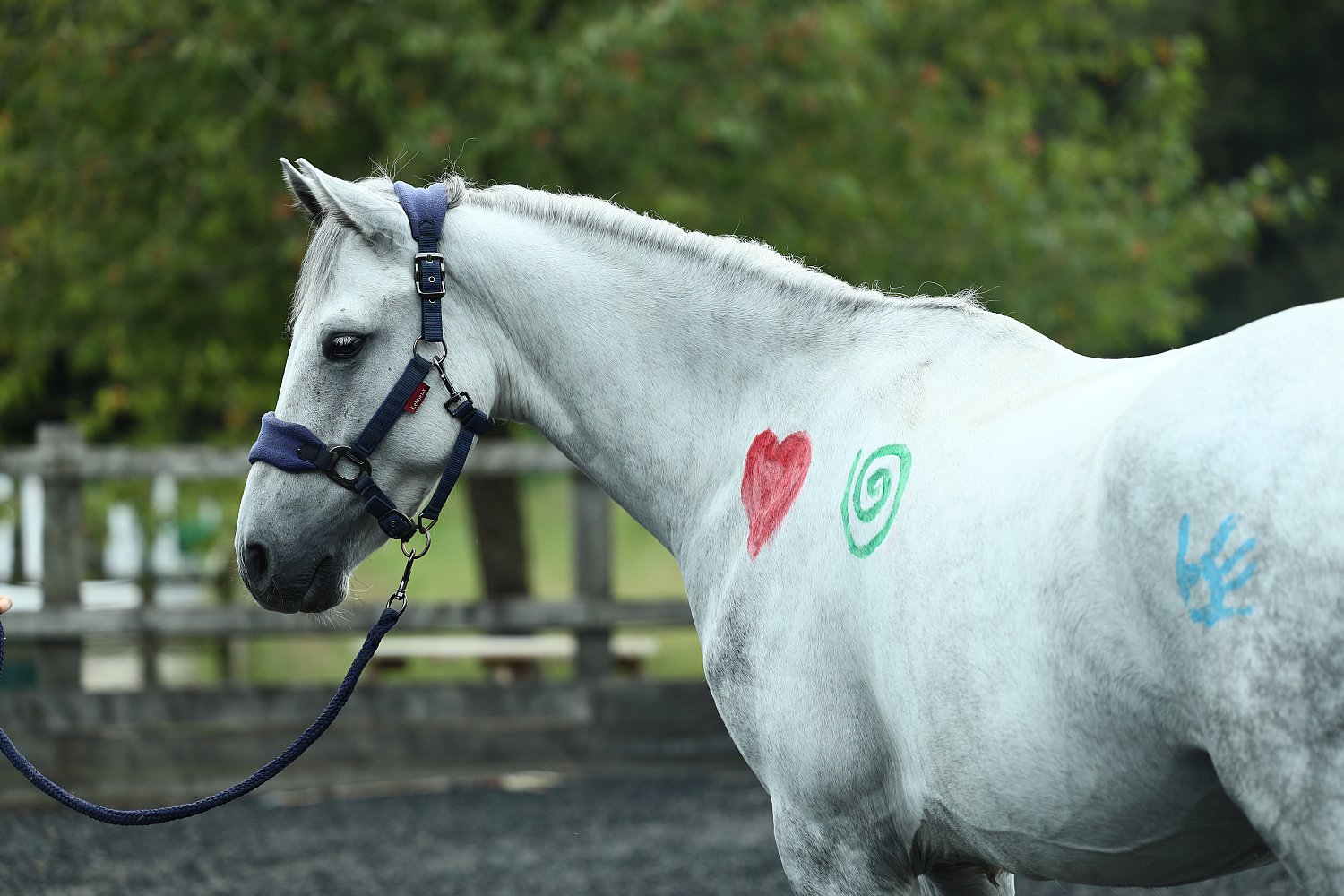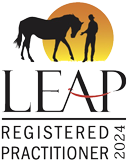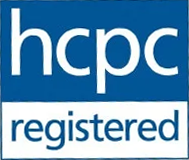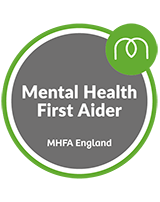Overview
Stable Minds ensures that horses involved in therapy sessions are respected; treated with care, compassion, and empathy; and that their physical and mental wellbeing is prioritised. Stable Minds adheres to the principles outlined in The Animal Welfare Act (2006) ‘Five Freedoms’, and The Compassionate Equestrian (Schoen & Gordon, 2015) and is committed to promoting ethical practices in the care and use of the therapeutic herd.
Guiding Principles
Animal Welfare Act (2006) ‘Five Freedoms’
- Freedom from hunger/thirst
- Freedom from pain, injury and disease
- Freedom to show natural behaviour
- Freedom from discomfort
- Freedom from fear and distress
The Compassionate Equestrian Principles
- We recognize the sentience (ability to feel pain/pleasure) of horses, as well as all beings. We acknowledge that the horse is a willing, thinking, living being with most of the identical emotion-creating molecules found in human beings. We recognize that the horse has bones, muscles, nerves, and organs, as does a human, and that these structures are just as susceptible to injury, damage, and disease as those of people.
- We treat animals as we wish to be treated ourselves, with respect and compassion, to the best of our abilities.
- Compassionate equitation is based on an underlying foundation of respect, compassion, and loving-kindness.
- Compassionate equitation is based on the latest in neuroscience and equitation science, and the benefits of a compassionate brain and heart for all interactions.
- We make time for self-reflection and revaluation of various areas of horsemanship. Do our choices meet basic humane standards of respect for all life?
- We take a few moments of silence to become heart-centred, allowing for the release of any destructive emotions, prior to working with any horse in any way. This allows both the individual and the horse to interact from a place of inner calm, peace, awareness, and mindfulness, thereby allowing for the most positive, constructive outcome from all interactions between humans and horses.
- Compassionate Equitation accelerates the evolution of joy, respect, and gratitude between humans and horses, and allows for a more expansive, conscious interaction between humans and equine companions.
- We acknowledge that a peaceful, quiet environment is of benefit. Research suggests that classical and country music are conducive to a peaceful environment for animals.
- We agree to act with patience, kindness, and consistency, avoiding any intentionally harmful, aggressive, violent behaviours, including actions out of anger or egoic self-interest.
- We allow for the creation of new, more respectful, humane, and considerate approaches to horsemanship and all training methods.
- We acknowledge that common sense is a component of compassion. We agree that our hearts be open to the bigger picture of how the horse industry has evolved, and how it will evolve into the future, as kindness, tolerance, and forgiveness are restored to all aspects of the equestrian world.
- We are committed to educating everyone involved with horses in the understanding of how pain and discomfort are expressed by a horse.
- We recognize that horses may exhibit subtle behavioural signs of discomfort and pain. These signs could indicate the early onset of potential lameness and lead to chronic, serious problems. We agree to increase our mindfulness, awareness, and understanding of such subtle signals conveyed to us by the horse’s silent language.
- We acknowledge that all beings deserve to live in a holistic, balanced, healthy environment. This is imperative to preventative health care, both physically and mentally, of humans and horses, and includes the creation of barns and environments free of toxic compounds.
- We embrace a holistic, integrative approach to equine health care, merging the best of conventional and complementary approaches that help horses heal, and relieve their pain and suffering as quickly as possible.
- We offer the most natural food sources and supplements available.
- We acknowledge neurobiology and quantum physics as a foundation for interspecies communication, the Transspecies Field Theory, and the Compassionate Field Theory.
- We acknowledge that compassion is the common foundation shared in the world of equestrian activities. Grounded in individual responsibility, respect, loving-kindness, and a true willingness to alleviate another’s suffering, compassion is the unifying force that transcends all labels, beyond breeds, discipline, health care, and medications. The essential question is, “What is the most compassionate choice for our horses, and all involved, in this moment?”
- We embrace compassionate rehabilitative programs. A cradle-to-cradle equestrian model ensures a humane life from birth to death for all horses.
- We choose to restore compassion to the centre of all equine-based facilities, horse training techniques, and equestrian sports, and to clearly understand and acknowledge the difference between what constitutes kindness to horses and what does not. We cultivate responsible compassion toward all horses, including those deemed feral, unwanted, “homeless,” aged, or unrideable for any reason.
- We allow for an authentic bond based on compassionate care to form between horses and humans, leading us into a new paradigm of training and understanding that brings our worldwide community of horse lovers together with peace, awakened compassion, and loving-kindness for the good of all.
- We recognize the importance of applying a life-cycle assessment and sustainability model to the equestrian industry.
- We acknowledge the importance of healing “old wounds” as an integral foundation of heart- centred horsemanship. Healing old wounds allows us to be the absolute best human beings we can be. Removing these harmful “filters” allows us to see the world with clearer vision, unobscured by destructive patterns and emotions.
- We acknowledge that by the acceptance and practice of the 25 Principles of Compassionate Equitation, we are on the path to becoming compassionate global citizens and extending the message of The Compassionate Equestrian to the entire world.
- We acknowledge that forgiveness is a key to healing emotional and psychological wounds, and pain and suffering within ourselves. We recognize the importance of forgiving ourselves, as well as forgiving all others—horses and humans—as a foundation for improving health and happiness. We commit to working on forgiveness within ourselves for the benefit of all beings.
(Schoen, A. M., & Gordon, S. (2015). The Compassionate Equestrian: 25 principles to live by when caring for and working with horses. Trafalgar Square Books.)
Implementation in general practice
- Horses always have access to fresh, clean water.
- They are fed a balanced diet consisting of feed, supplements, hay, and pasture, that is tailored to their age, workload, and any health conditions.
- Their body condition is regularly monitored to ensure they maintain a healthy weight.
- Horses are provided with appropriate shelter to protect them from extreme weather.
- Their stables are clean, dry, and spacious to allow natural movement.
- Stable Minds works closely with Emerson and Watson Vets who carry out regular health checks; promptly address any illnesses or injuries; and maintain a vaccination schedule.
- Jack Holder, Registered Farrier, looks after the therapeutic herd’s hooves.
- Briony Mackenzie, The Equine Balance Specialist, regularly provides physiotherapy to the horses to make sure they are comfortable and happy.
- The dental needs of the horses is taken care of by Andrew Williams from Williams Equine Dental Services and they have six monthly check-ups.
- All horses are microchipped and hold a passport.
- The horses have adequate time and space for free movement, grazing, and socialization with other horses.
- Their stable time is kept to a minimum and they have daily access to the pastures.
Implementation in EFP practice
- The horses are handled with patience and kindness, and only humane training methods are used to prepare them for therapy sessions.
- Horses are free to choose whether they wish to work with a client or not and their choices are respected.
- The horses are closely observed during sessions for signs of discomfort, stress, or fatigue, and they will be removed from the session if any concerns arise.
- All clients are required to sign a safety contract so that they understand the need to wear protective attire, and the basics regarding the nature and physical characteristics of horses.
- Clients will not be left unattended with the horses.
- Horses working hours will be limited to two, 90-minute, individual sessions per day and this will be recorded.
Review
This policy will be reviewed annually to ensure it remains consistent with the latest equine welfare standards and therapeutic practices.






